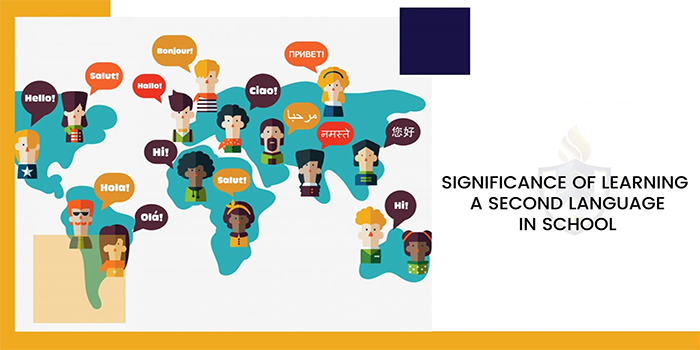
Many schools offer second language classes as part of their curriculum. This allows students to learn a new language while they are still in school and helps to prepare them for a globalized world. Furthermore, it can help students to become more culturally aware and better understand different perspectives. Learning a second language can also open up new career opportunities and provide an edge in a competitive job market. In addition, knowing a second language may help students to develop better communication and reasoning skills.
Importance of Second Language in School
Learning a second language in school can be extremely beneficial for students. It can help to expand their understanding of the world around them, improve their communication skills, and increase their chances of success in their future careers. It can also help to foster a sense of empathy, allowing students to better understand and appreciate different cultures and perspectives. Furthermore, understanding a second language can improve mental flexibility, creativity, and problem–solving skills. Finally, learning a second language can provide students with a deeper appreciation and understanding of their own language, as well as a greater appreciation and understanding of other languages and cultures.
Purpose of Second Language in School
The purpose of a second language in school is to give students the opportunity to learn a language that may broaden their perspectives, open up opportunities for further study and travel, and improve communication skills. Learning a second language can also help students better understand the cultural background and values of other countries and people. Additionally, it can provide valuable cognitive benefits such as improved problem–solving and memory skills.
How To Find Tution and Teacher For Second Language
1. Ask around friends and family for recommendations.
2. Look for language courses offered at your local community center or library.
3. Check with local universities or colleges for language classes.
4. Search online for tutors and teachers offering language lessons.
5. Ask if your school offers classes in the language you want to learn.
6. Look into online language learning programs.
7. Look into language immersion programs.
8. Consider hiring a private tutor.
How a second language can boost the brain?
Acquiring a second language has numerous positive effects on the brain. It helps to improve cognitive functions such as memory and concentration, increases mental flexibility, and sharpens problem–solving skills. Additionally, it can help to delay the symptoms of Alzheimer’s and dementia. As learning a language requires memorizing and understanding of rules, it helps to strengthen memory and improve attention span. Also, as it involves mastering various vocabulary, it helps to stimulate the mind and expand its capacity to think. Furthermore, being able to communicate in two languages helps to increase mental flexibility and allows the brain to switch between two different frameworks. Finally, the process of mastering a second language allows for the development of problem–solving skills, as the learner must constantly be able to identify the differences between the two languages in order to communicate effectively. Therefore, learning a second language has numerous benefits for the brain.






